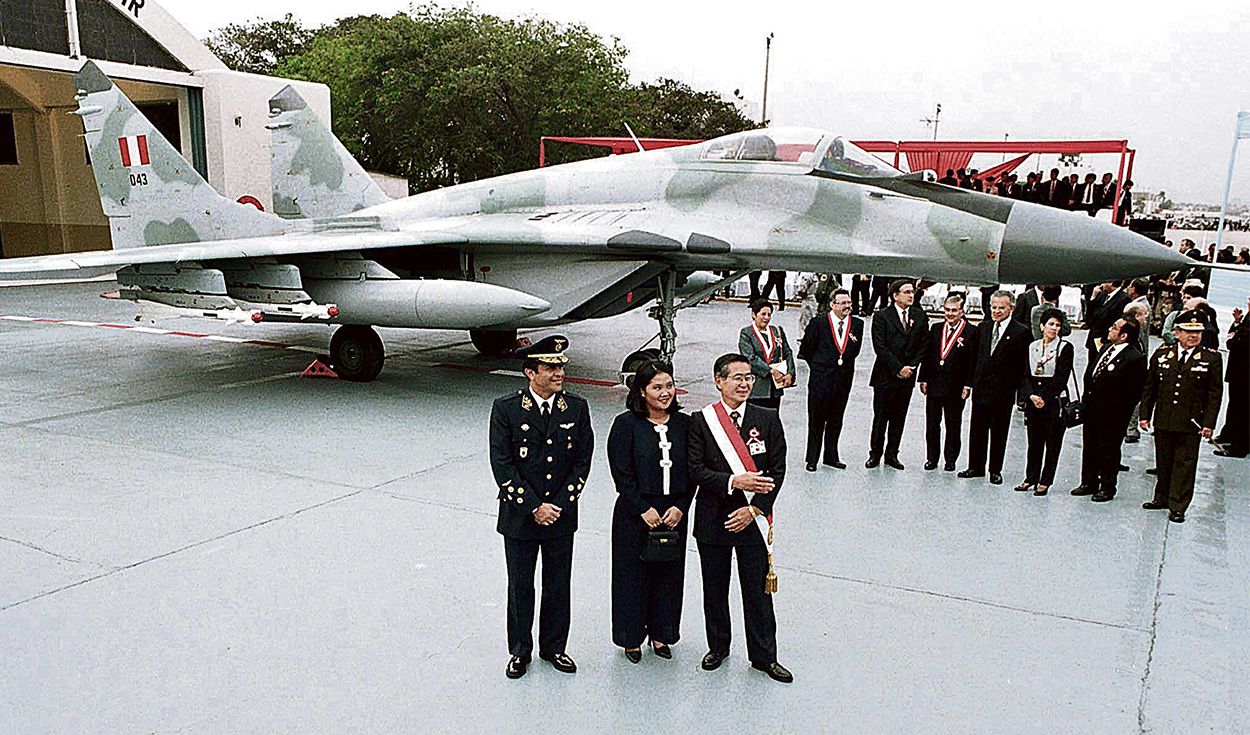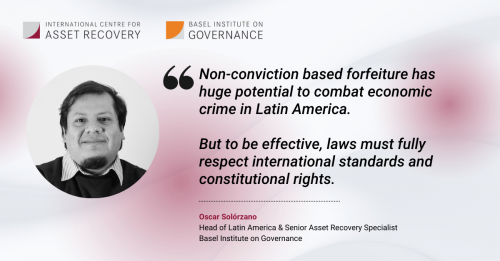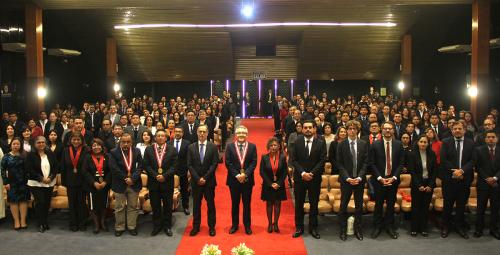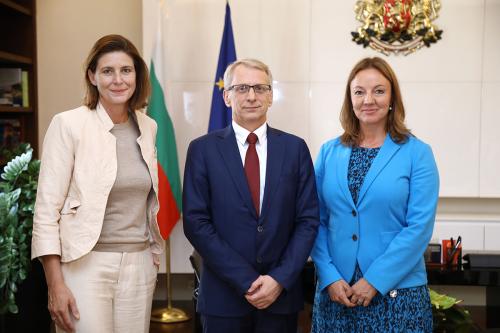Peru recovers USD 8.5 million through non-conviction based confiscation

Peru’s Attorney General’s Office has recorded another successful use of its non-conviction based confiscation law, extinción de dominio, to recover stolen assets from abroad.
The case involves around USD 8.5 million plus interest frozen in a bank account in Switzerland since 2004. The assets derived from contracts for the purchase of overvalued MiG-29 and Sukhoi Su-25 aircraft during the government of Alberto Fujimori.
The beneficial owner of the bank account, identified as German-Israeli businessman Moshe Rothschild Chassin, has fled to Israel. In his decision, Specialised Non-Conviction Based Confiscation Judge Eduardo Torres said that Moshe was one of various individuals who received illicit commissions from corrupt arms sales contracts between Belarus and Peru. However, as an accomplice rather than a public servant, Moshe can never be prosecuted on criminal charges of collusion and bribery and will not be extradited from Israel.
This led to the strategic choice of a non-conviction based confiscation procedure in order to recover some of the stolen money.
Following the money to a court of law
Specialised Anti-Corruption Prosecutor Hamilton Castro highlighted the crucial role of the Basel Institute’s support in this case, saying:
“The Basel Institute on Governance has not only supported the Attorney General’s Office in matters of cooperation with the Swiss authorities and during the investigation, but also the judicial process itself. [The Basel Institute’s Senior Asset Recovery Specialist] Oscar Solórzano prepared the financial analysis of the money trail that was used as evidence and presented it in the judicial hearing.”
The financial analysis demonstrated with a high degree of certainty that the illicit commissions moved, via complex chain of transactions, from the Peruvian public treasury to a bank account of the legal structure Rovno Ltd. in the bank of BBVA Privanza in Zurich.
Precedent-setting legal opinions
New jurisprudence requires deep expertise and understanding in order to establish legal precedents that allow for a smooth path ahead. The Basel Institute’s legal opinions on issues including notification of the accused and his invitation to participate in the proceedings have helped to unlock sticking points and progress the case in accordance with due process and international standards. These legal opinions potentially may become protocols going forward.
In the Moshe case, the final return of the funds is now pending appeals processes in both Peru and Switzerland. Other recent successful asset recovery cases supported by the Basel Institute, which relied on a variety of techniques from criminal conviction to plea bargaining, are now closed. The money, amounting to over USD 40 million, will be returned to the public treasury following an agreement between the states covering the restitution and safeguarding of the funds.
Realising the potential of non-conviction based confiscation
The Basel Institute is supporting the Peruvian authorities in establishing a nationwide system for extinción de dominio. We are grateful to the core donors of the International Centre for Asset Recovery and to the Swiss State Secretariat for Economic Affairs for funding these valuable efforts. Support from the Swiss SECO Cooperation is part of a wider programme implemented by the Basel Institute’s Peru country office to strengthen public finance management across 11 subnational governments in the country.
Oscar Solórzano, who leads the Basel Institute’s programme of work in Latin America, has argued that non-conviction based confiscation laws such as extinción de dominio offer great potential for victim states to recover the proceeds of grand corruption.
Thanks to the law of extinción de dominio, it has finally been possible to recover these assets nearly 20 years after they were frozen in Switzerland. It may take longer for the assets to be returned to Peru depending on how the appeals process and execution of the recovery order – the first in Switzerland with the new law – plays out. Nevertheless, the Moshe case sends a clear message to others tempted to profit from corrupt deals that, in the words of Prosecutor Hamilton Castro last year, “justice may take time, but she does not forget”.
In addition to serving justice and creating a deterrent effect, asset recovery can help to strengthen the entire justice chain. This is directly the case in Peru: a portion of the recovered assets from previous successful cases supported by the Basel Institute will be used to fund the establishment and strengthening of the country’s new asset recovery office and system. Coupled with the determination of prosecutors and judges, this will enable Peru to celebrate many more victories against corruption in the coming years.
For non-conviction based confiscation laws to achieve their true potential, Solórzano argues that requested states to live up to their commitment under the United Nations Convention Against Corruption to afford victim states mutual legal assistance “to the fullest extent possible”. Recent cases involving Switzerland and Luxembourg, which do not have equivalent laws but do recognise the legal principles, have demonstrated that this proactive cooperation is both possible and beneficial to all sides. Read his speech at a recent panel of the second preparatory meeting for the UN General Assembly Special Session (UNGASS) against Corruption, available in Spanish and English.
See more about the Moshe case and recovery on Peru’s judicial TV channel (in Spanish).



